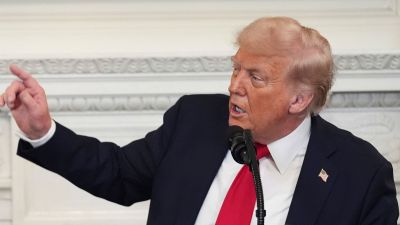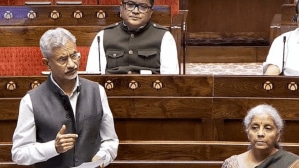World Tribals Day: Adivasis demand legal recognition of villages, reinstatement of Forest Rights Act
The tribals fear that proposed SRA (Slum Rehabilitation Authority) projects and other developments aim to displace them under the guise of progress.
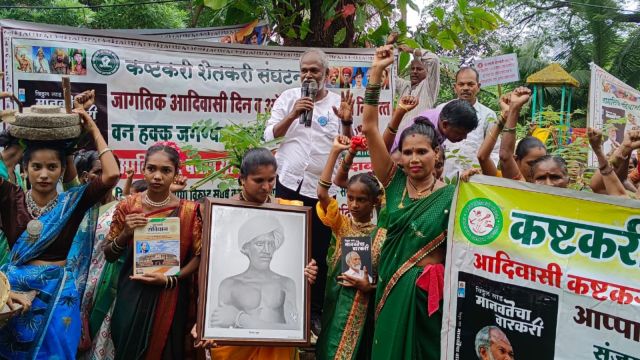 Mumbai is home to approximately 222 Adivasi villages with around 10,000 residents who are the original custodians of the city's forests. (Express Photo)
Mumbai is home to approximately 222 Adivasi villages with around 10,000 residents who are the original custodians of the city's forests. (Express Photo)On Friday morning, around 1,200 to 1,500 tribals congregated at Aarey Colony in Mumbai to celebrate World Tribals Day. This event, however, served as both a celebration and a silent protest.
The Adivasis, claiming to be the original inhabitants of the forests around Mumbai, have lived in harmony with nature for generations, cultivating their lands and preserving the environment. Despite their deep-rooted connection to these lands, they have been systematically denied their rights and marginalized. The protest march, known as “Adivasi Bachao Yatra” (Save Adivasis March), was a plea for justice, equality, and recognition, led by Vitthal Lad of the Kashtakari Shetkari Sanghatna.
Struggle for recognition, survival
Mumbai is home to approximately 222 Adivasi villages with around 10,000 residents who are the original custodians of the city’s forests. Vitthal Lad, convener of the protest, explained, “Their villages, where they have lived for hundreds of years, are not recognized as revenue villages, leaving them in legal limbo. This lack of recognition has severe consequences, preventing them from accessing basic amenities, government benefits, and legal protection.”
The march saw participation from people of all ages, including many youths concerned about their future. Ramesh Gatal, a young Adivasi leader, stated, “We are the rightful owners of these lands, yet we are treated like encroachers. Our ancestors lived here long before the city existed. We demand that our villages be declared revenue villages to secure our legal recognition and rights.”
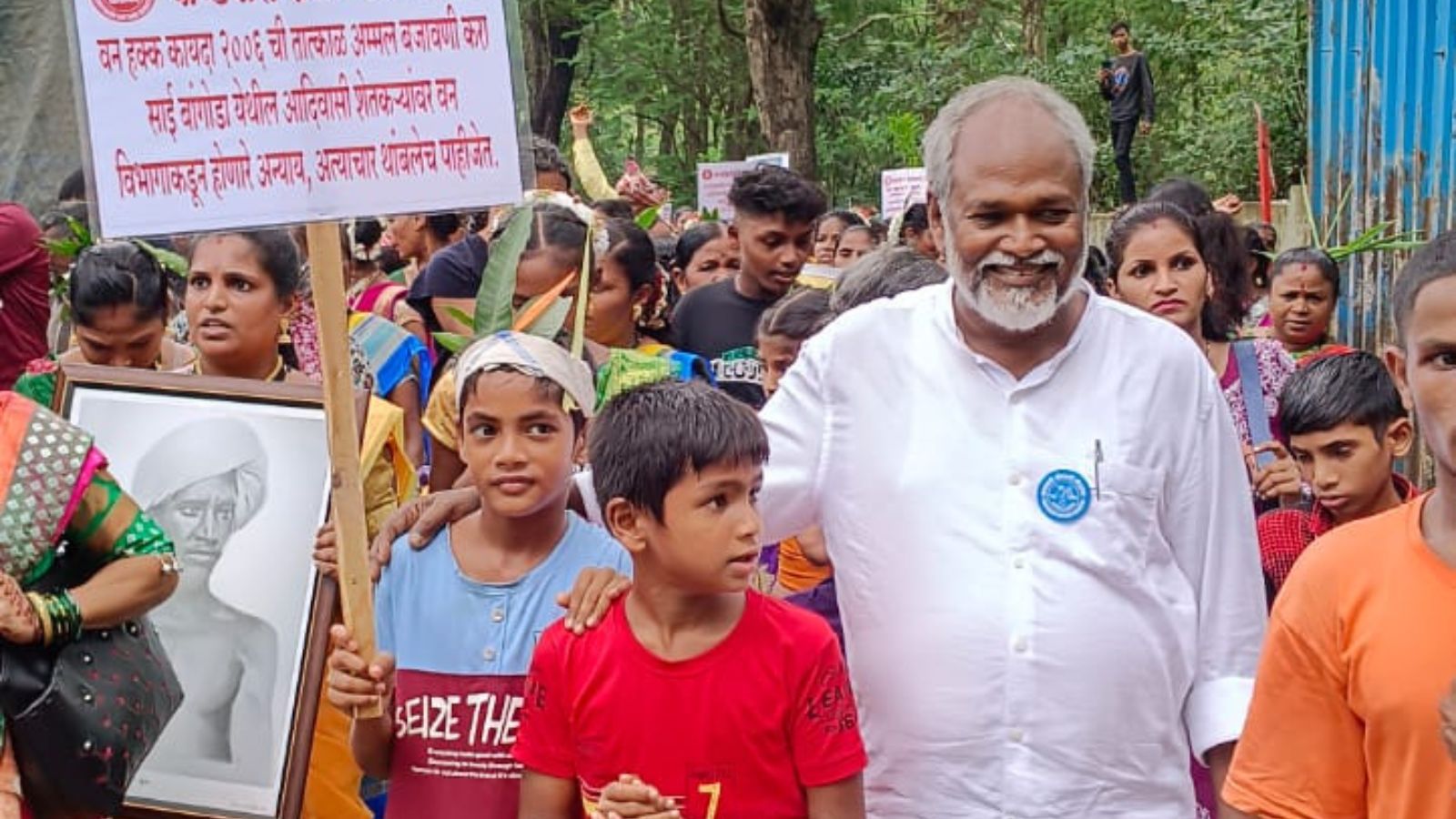 Vitthal Lad led the protest. (Express Photo)
Vitthal Lad led the protest. (Express Photo)
The Adivasis also called for the reinstatement of the Forest Rights Act of 2006, which granted them rights over the forests they have safeguarded for generations. The act has been undermined by subsequent policies and projects, threatening their existence. The tribals fear that proposed SRA (Slum Rehabilitation Authority) projects and other developments aim to displace them under the guise of progress.
“Our lands are being fenced off, and our farmlands are being seized as government lands. We are denied the right to farm, destroying our livelihood. This is about more than land; it’s about our identity and survival,” said Vanita Thakare, an elderly woman from Aarey Colony.
Denial of basic rights
Activists argue that many tribal settlements lack access to essential services available to other city residents. “Among the most pressing issues are the lack of healthcare, education, and clean water,” said Sanjiv Vansal, an activist for tribal rights.
In many villages, children face inadequate educational facilities. Laxmibai, an Adivasi mother of three, remarked, “Our children attend school daily, but the facilities are questionable.”
Healthcare is another major concern. Villages are often remote, far from hospitals. Vansal noted, “Incidents of snake bites are common, but there are no primary health facilities to treat them. In emergencies, villagers must travel to Cooper Hospital in Juhu, often resulting in loss of life due to delays.”
Water access is another issue. In Khambacha Pada, a village with about 45-50 houses, a single tap provides water for just 15 minutes a day, while a nearby cowshed receives ample water.
Urban colonization: A threat to Adivasi existence
The concept of “urban colonization” is a significant threat. As Mumbai expands, Adivasis find themselves increasingly displaced by powerful interests. The government often sides with developers and corporations targeting forest lands, labeling the Adivasis as encroachers on their ancestral lands.
“The city people are the real encroachers, not the Adivasis. They come here, seize our lands, and then call us illegal occupants. This is urban colonization, where the powerful exploit the powerless. The government and politicians see us merely as land parcels, not as human beings,” said Vansal.
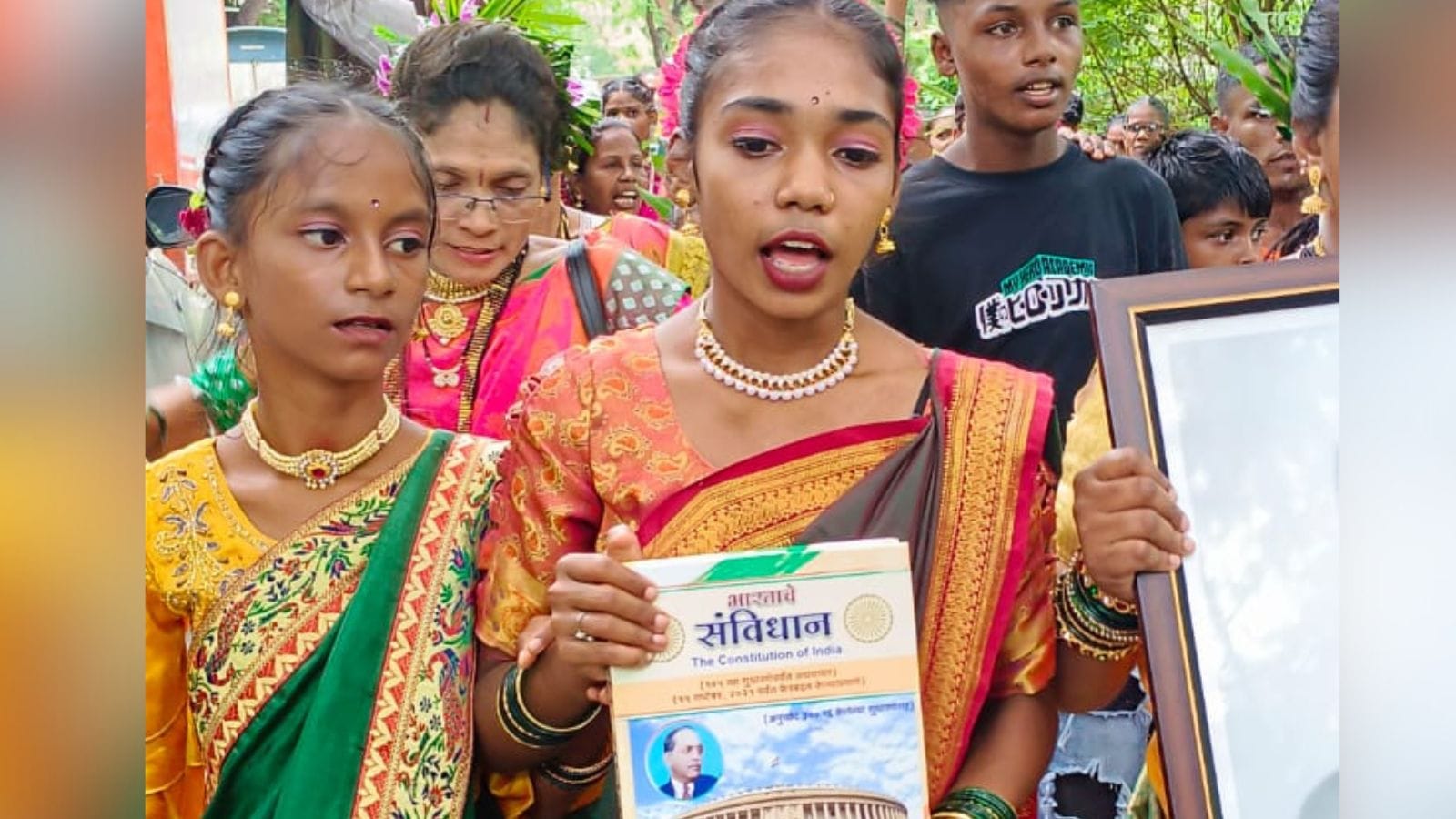 A young girl withe constitution. (Express Photo)
A young girl withe constitution. (Express Photo)
Adivasis also face discrimination and harassment from government bodies. Their protest march was denied permission by the local police despite advance application, highlighting systemic bias. “We were denied our right to protest and voice our concerns. The authorities see us as a nuisance rather than citizens with rights. We face secondary treatment just because we are Adivasis,” said Thakare.
The demand for recognizing their villages as revenue villages is not merely a legal issue but a matter of survival. Without this recognition, the Adivasis lack the legal standing to protect their lands from encroachment and exploitation. “The Adivasis are not asking for charity; they are demanding justice, equality, and respect for their rights as the original inhabitants of the land,” said Lad.


